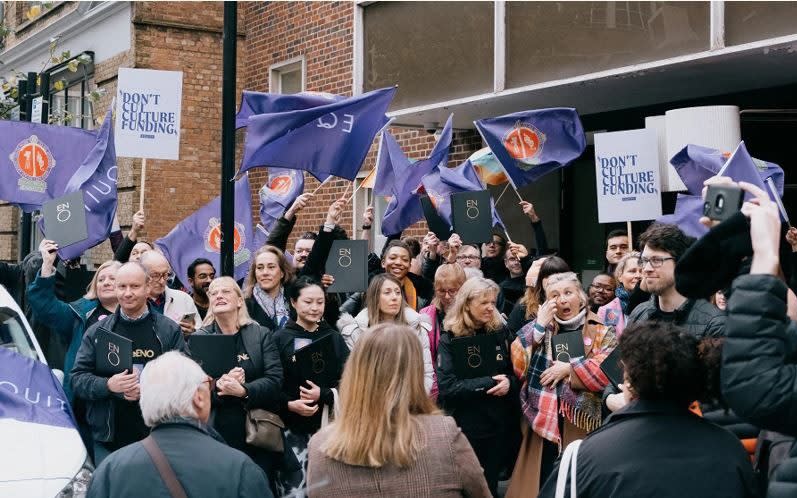English National Opera musicians to strike for first time in 40 years

English National Opera musicians will strike for the first time in 40 years over plans to put performers on part-time contracts.
The company has been dogged by controversy since Arts Council England announced in 2022 its funding would be cut and the ensemble would be relocated outside London.
Musicians are now set to walk out in protest against plans to downsize the ensemble and rehire players on part-time contracts.

The Musicians’ Union has announced strike action will begin on Feb 1, in what is the first walk-out since a protest against planned BBC cuts to its orchestras in 1980.
News of the strike comes after Martyn Brabbins, the music director of the ensemble, quit the company in October over concerns that plans to cut orchestral roles and put remaining performers on part-time contracts amounted to “managed decline”.
Naomi Pohl, the general secretary of the Musicians’ Union, warned that “individual musicians might be looking for alternative work” because “it’s hard to see how they will make ends meet with half a job”.

The Arts Council decision in 2022 to cut all ENO funding was later softened, with the company provided with funding on the condition that it move its main base outside of London.
This proposal also caused financial concerns over the lack of a large opera audience outside the capital.
In June, Lord Sumption, a board member, quit in protest at the plans and warned that moving the ENO away from a location with a large audience for classical music would effectively be a “death sentence”.
He predicted that the company would lose staff who would be unwilling or unable to relocate from London, leaving it only able to survive by patching together a group of part-time musicians, as it split its time between the capital and a future base that is yet to be decided.

